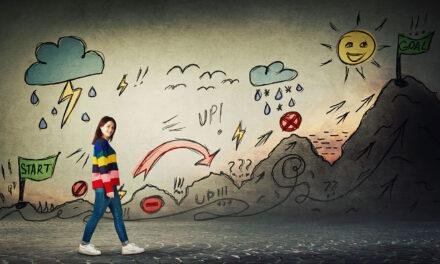12 Eco-Lifestyle Changes To Adapt For Impactful Environmental Change
Eco-lifestyle changes are necessary because as occupants of our earth and its dominant species, we are responsible for many of the changes affecting our environment negatively. The burning of fossil fuels for heating, electricity generation, as well as the use of chlorofluorocarbons (CFCs) as coolants and aerosols, just to name a few, contributes to the accumulation of greenhouse gases in the earth’s atmosphere. That is why it’s important to become cognizant of the choices we make daily and make eco-lifestyle changes for positive impacts.
Today, it’s clear that we must change our lifestyle as much as possible to reverse some of the negative environmental effects resulting from our action. Fullrliving believes we can all contribute to reversing these negative effects, and it starts by doing what we can when we can.
We published the first 2 eco-lifestyle changes to make in our subscription based newsletter, Greenish. You can subscribe to this newsletter below and select environment as your interest.
3. Eat Sustainably
What we eat is responsible for 60% of our global biodiversity loss. Our food choices also contribute to a quarter of our global greenhouse gas emissions.
To benefit the environment, consider moving away from a diet that’s meat-heavy. A plant-based diet has grown in popularity these days. Also, it’s not the same as it was a decade ago. Today, vegetarian and vegan foods are becoming more popular in restaurants, cafes, and supermarkets. You truly won’t miss the meat. Thanks to meat alternatives, the choice to go meatless is trendy these days. Let’s focus on the sustainable benefit though.
4. Reduce the Amount of Waste You Produce
Any item you purchase has an environmental impact and can end up in a landfill. Plastic pollution is having a growing effect on our oceans, with serious consequences for our marine life.
Choose to minimize the amount of products you use and make a point to recycling what you can. Besides recycling, consider up-cycling. Turning something that’s old into something more useful is improving the efficiency of our resources. There is another way to consider up-cycling. Instead of throwing away something that you no longer find useful, give it to someone who will. I’m sure you’ve heard the idiom: One mans trash is another man’s treasure. I am sure there are other sites online, but freecycle.org is one site you can use to place a picture of your unwanted item and offer it to somone who may find it useful. This is truly a way to help others while contributing to saving our environment.
5. Buy Reusable Water Bottles and/or Coffee Cups
Would it surprise you to know that Starbucks, the company synonymous with coffee to go, distributes 8,000 coffee cups per day? Look at their use another way; Starbucks gives to its users over four billion coffee cups per year. Not to fault Starbucks for filling the need of coffee drinkers worldwide. They do recognize the need to live sustainably. Visit any Starbucks and you will discover they offer alternatives to their paper cups. In fact, you get the impression they want you to choose their plastic cups (not a great idea), or better yet buy one of their reusable mugs.
Related: Starbucks And Our Plastic Pollution Problem
We always forget how much waste accumulates with our consumption of hot and cold beverages we purchase on the go. Keep a reusable water bottle and/or coffee cup in any location where you might need one. Have them readily available by keeping one in the car, at the desk, or in a work bag. You don’t want to miss the opportunity to choose one when the need for coffee, tea or a cold beverage arises.
6. Lose The Bag, Part 1
Here is an example of a slight change you can make that is often overlooked. And of course it’s not something we notice because who would think of tea bags as having unnecessary packaging? However, it does. Those round or square bags you put in your cup, if you are a tea drinker, affects our environment. A better option? Loose tea. With a tea diffuser, not only will you consume teas that have more nutrient, it will most likely taste better, and you will eliminate food packaging waste that affects our environment negatively.
7. Lose The Bag Part 2
Visit most supermarket in the U.S. at least, and walk into the produce department and you will notice rolls of bags available at most of the produce bins for shoppers to store their produce selections. While these bags are convenient and easy to reach for, their impact on our environment is detrimental. It will take over a thousand years for those plastics to break down. Any man-made product that will exist long after an average life span should be banned from every day use.
8. Community Supported Agriculture
Used mostly in the US and Canada, CSA is a system that connects farmers or the producers of foods with consumers. Using CSA involves subscribing to the harvest of certain farms or groups of farms willing to bring their crop directly to the consumer. To take part, you would sign up for a share, or the chance to pick up a box of locally grown produce weekly. All boxes comprise of seasonal produce.
A CSA approach is an alternative to the typical distribution of produce, which involves the produce being purchased by a grocery store and sold back to its customers. A CSA removes the grocery store from the equation and supports an eco-lifestyle that will impact our environment positively.
Related: Find a local CSA in your area
9. Choose Organic
The bad news: Organic foods cost 47 percent more than the ordinary foods we consume. The good news: You are adapting an eco-lifestyle when you choose organic. Which means you are consuming foods that’s pesticide free, fertilizer free, and produces less pollution. Choosing organic may be a little more expensive, but it’s essential for sustainability.
Related: The True Cost Of Organic Foods
10. Reduce Consumption Of Certain Proteins
In the post Reducing Your Carbon Footprint, we mentioned meat as an example of how eating it contributed to our personal impact on the environment. Yes, meat contributes to man-made global emissions. The reality, however, is that most will never stop consuming it. In America alone, it is a staple in almost every household. For those who couldn’t fathom not eating meat, an alternative may be to have meatless days, or as suggested above, choose to eat sustainably.
Related: 5 Simple Ways To Reduce Your Carbon Footprint
11. Really Recycle
When we think of the environment, it’s the first thought that comes to mind. Knowing that we should, and actually doing it however, is two separate things. We are so accustomed to throwing everything in the garbage in the kitchen, or even in our bathrooms, that we fall into habits that we don’t want to change. Why don’t we want to change the habit? Because we don’t see an immediate effect of our actions.
To change our mindset and think in terms of cause and effect is an important part of choosing an eco-lifestyle. Start today to establish a recycle system in the kitchen, bathroom, laundry room, or anywhere our action today will have consequence we don’t want to be responsible for tomorrow.
12. Go Paperless
You may have read the post Going Paperless In Six Easy Steps. Besides removing unwanted, bulky paper from your living environment, there are other additional ways to have a paperless lifestyle. Let’s use junk mail as an example. We all get them. It doesn’t matter if it’s the credit card offers, coupons from a favorite store, or magazines still asking to subscribe to their paper issue. Junk mail is as prevalent as the dollar bills in your wallet, or the manual that comes with the appliance you just purchase. The difference is, you need the dollar bills; and you need the manual to understand how to use your appliance. These two examples are a necessity, junk mail is not. Resources exist to end the barrage of paper you receive daily in the mail. Reader’s Digest published a post on this very topic. This Is How You Can Stop Getting Junk Mail For Good.
Have You Tried Any Or All Of The Eco-Lifestyle Changes Above?
We would love to hear from you. Also, we encourage you to share your experience within your circle of influence. Your experience can be a contributing factor for others to change. And, if you want to get more engaged, consider reaching out to your local elected officials. Ask them what their initiatives are for the community to be more eco-conscious. While we believe It’s all about doing what you can, when you can, we also realize it’s not all on you.









Trackbacks/Pingbacks